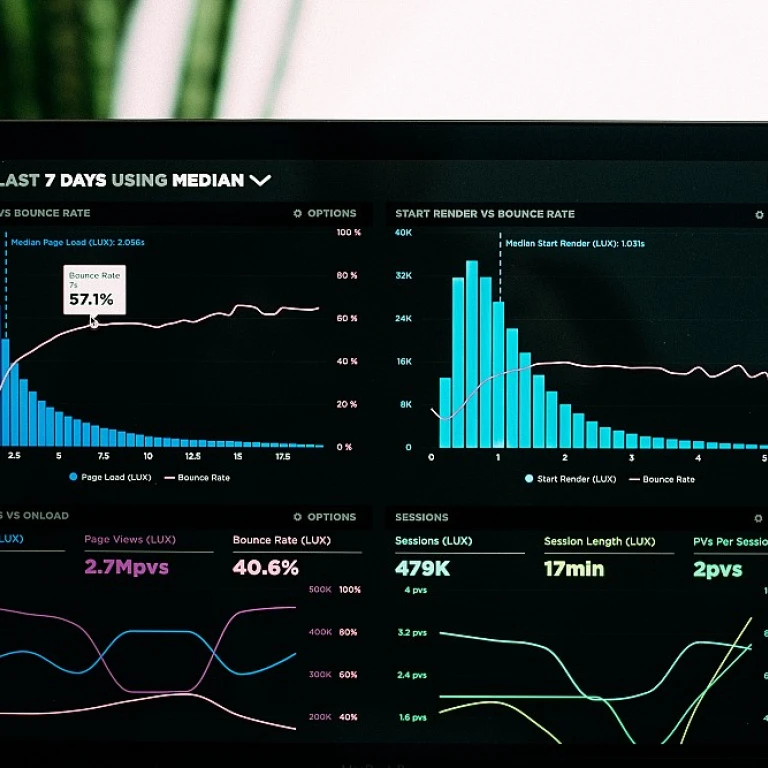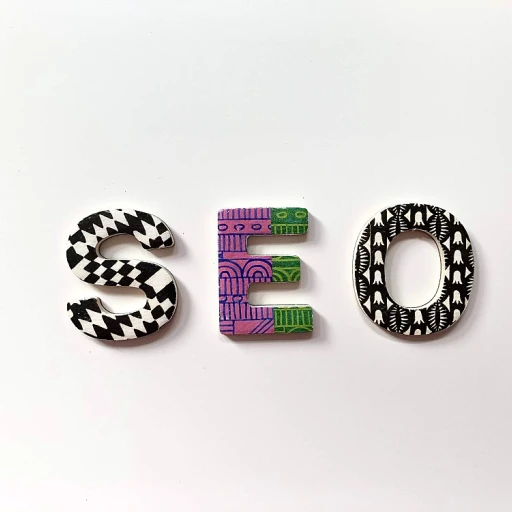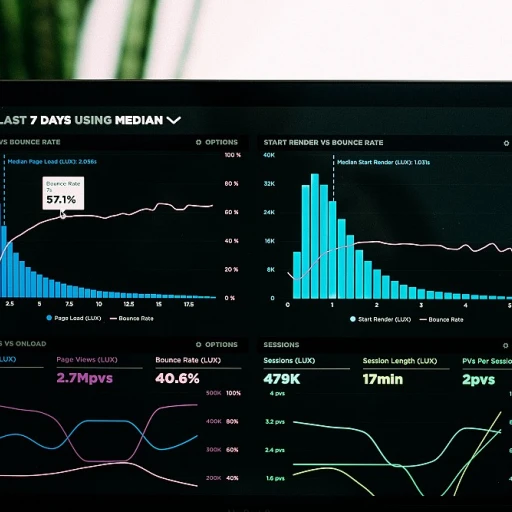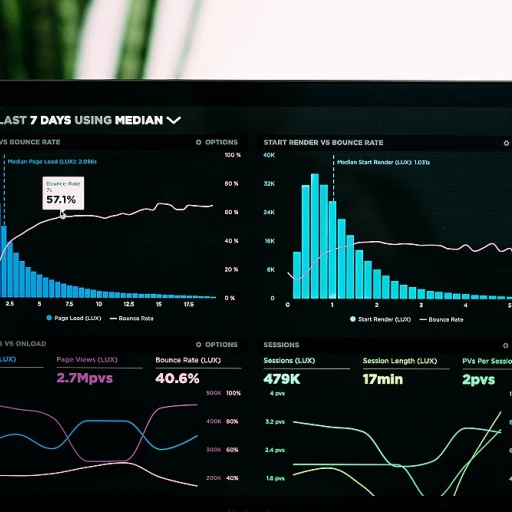The Symbiosis of AI and SEO: Understanding the Partnership
Harmonizing Artificial Intelligence with Search Engine Optimization
The integration of Artificial Intelligence (AI) into the realm of Search Engine Optimization (SEO) is akin to a conductor expertly guiding an orchestra; each element works in harmony to create a symphony of digital success. The partnership between AI and SEO is built upon the foundation of data analysis, pattern recognition, and strategic automation. In today's digital ecosystem, AI-enhanced tools are empowering SEO experts with unprecedented capabilities—reshaping keyword strategies, refining content relevance, and revolutionizing personalization.
AI: The Pinnacle of Efficient Data Processing
One cannot discuss AI's influence on SEO without addressing its stellar efficiency in processing vast amounts of data. Algorithms designed with machine learning analyze user behavior, search patterns, and trends with a speed and accuracy unattainable by human endeavors. This data-driven approach results in SEO strategies that are not only reactive but also proactive. By understanding the intricacies of this symbiotic relationship, marketers can anticipate changes in search engine algorithms and user behaviors, maintaining a competitive edge.
Transforming Keyword Research with Machine Precision
AI is revolutionizing how we understand and implement keyword research. Gone are the days of solely focusing on high-volume search terms. Today's AI tools delve deeper into the semantics of search queries, understanding user intent and contextual meaning. This advanced analysis allows for the optimization of content that resonates with both the audience's desires and the search engines' evolving criteria—a topic we will explore with a detailed lens in the forthcoming sections on keyword evolution and content relevance.
In essence, the AI-powered SEO is not a mere tool; it's a collaborative partner in crafting a robust online presence. By leveraging AI's computation power and predictive analytics, digital marketers can orchestrate an SEO strategy that hits all the right notes, attracting and engaging the right audience. As we continue to unfold the layers of this complex relationship, we will delve into ways to enhance content relevance with AI insights and dissect how personalization and predictive analytics are becoming the crystal ball of SEO success. Lastly, we will navigate the ethical and strategic implications that come with this technological advancement, ensuring that our SEO approaches are as principled as they are powerful.
Keywords in the Age of AI: Beyond Simple Search Terms
Revolutionizing Keyword Strategy with AI Integration
In the realm of search engine optimization (SEO), keywords have always served as the foundational elements around which content is strategized. With the advent of artificial intelligence (AI), the approach to keyword optimization transcends mere search term identification. AI-driven tools offer profound insights into search intent, enabling content creators to target their audience with unparalleled precision. AI does not simply suggest popular search terms; it predicts and analyzes user behavior, considering context, synonyms, and related phrases to curate a multi-dimensional keyword strategy.
The Intelligent Edge in Semantic Search Analysis
The traditional method of stuffing content with keywords is now obsolete. AI takes the complex web of semantic search to another level. By harnessing the capabilities of natural language processing (NLP), AI discerns the intricacies of human language, allowing for the creation of content that resonates with both users and search engine algorithms. Data-driven AI tools can dissect language patterns to amplify the relevance of content, thereby improving its visibility and ranking. For instance, by analyzing thousands of related searches and content pieces, AI can elevate your content strategy from a monotonous tune to a harmonious symphony that hits all the right notes with your audience.
Long-Tail Keywords: The AI-Powered Path to Niche Mastery
Focusing on long-tail keywords is like finding the perfect melody in a sea of noise—these specific, often longer phrases cater to a more targeted demographic and are crucial in driving quality traffic to your site. AI tools are particularly adept at identifying these valuable phrases, which are less competitive yet highly effective due to their specificity. AI's predictive analytics help foresee emerging trends, allowing your content to not just keep pace with, but also lead the conversation in your niche market. By tapping into the long-tail keyword strategy with AI, you create content that not only aligns with current queries but also anticipates future searches, thus orchestrating a sustainable SEO strategy.
The Synergy of AI with Voice Search and Mobile Optimization
With the rise of mobile devices and voice search, the keyboard is no longer the sole gateway to information. Phrases used in voice search often differ from typed queries, meaning SEO strategies must evolve to accommodate conversational language. AI can analyze voice search data to identify key phrases that are more natural and question-based, tailoring content to align with the way real people speak. This adaptation not only improves user experience but also puts your content at the forefront of voice search results, an arena that’s rapidly gaining momentum.
Building Better Content Frameworks with Machine-Assisted Keyword Clustering
Imagine constructing a robust architecture for your content, where every piece interlinks and supports the other. AI's ability to cluster keywords creates topic models that provide a solid structure for your content. This method improves interconnectivity on your website, guiding users effortlessly through related topics, keeping them engaged, informed, and more likely to convert. Besides enhancing user experience, this clustering strategy also signals to search engines the depth and breadth of your expertise, propelling your site to higher rankings for a constellation of related terms.
In the age of AI, keywords are more than mere search terms; they are the notes in the grand symphony of digital content. As we proceed to explore how AI can enhance content relevance, remember that AI's role in SEO isn't just supportive—it's transformative, promising a future where content and user needs are in perfect harmony.
Enhancing Content Relevance with AI Insights
Delving into Data-Driven Content Strategies
The advent of artificial intelligence in the arena of search engine optimization (SEO) has heralded a new epoch in which data is king. No longer are we shackled to the whims of gut feelings or the rigidity of keyword density formulas. Instead, AI insights offer a refined lens through which to view the effectiveness of our content. How, you might ask? Through the meticulous analysis of user engagement metrics, search patterns, and a myriad of other data points, AI tools are enhancing content relevance with a precision that was previously unfathomable.
Intuitive Content Optimization
Imagine a system that not only comprehends the topicality of your content but also its contextual significance. AI-driven solutions, with their ability to process natural language at an astonishing speed, sift through vast oceans of content to suggest optimizations that resonate with users' intent. This is the new reality of SEO—a world where semantic search advancements ensure that your content aligns perfectly with what users are seeking. It's not just about having the right keywords anymore; it's about crafting content that speaks directly to the reader's needs and questions.
Leveraging User Intent for Smarter Targeting
One of the most extraordinary capabilities of AI in SEO is its power to dissect and understand user intent. This shift from keywords to intent signifies a monumental pivot in content strategy. No longer are we targeting broad phrases; instead, we're tapping into precise moments of user curiosity and information-seeking behavior. By leveraging AI, we can predict the questions that users might ask even before they type them into the search bar, enabling content creators to provide answers proactively and elevate content relevance to unprecedented levels.
AI and the Evolution of Search Algorithms
It's crucial to recognize that search engines are continuously evolving, becoming smarter, and more intuitive. Google's algorithms, for instance, are not merely mathematical equations but learning entities, trained on vast datasets to mimic human understanding. As a result, they favor content that not only utilizes SEO keywords effectively but also provides comprehensive, substantive answers. AI tools help us strip away the fluff, zero in on quality, in-depth content, and ensure that every piece we publish is informed by data and optimized for both search engines and real human readers—a true symphony of relevance and precision.
Personalization and Predictive Analytics: SEO’s Crystal Ball
Unlocking Customized User Experiences Through AI
The contemporary digital landscape is akin to a grand concert, where AI serves as the masterful conductor, orchestrating a highly personalized user experience. AI's analytical prowess harmonizes with the evolving SEO tactics to create a predictive model that can foresee user preferences with astonishing accuracy. By tapping into vast datasets, AI can predict what content will resonate with a user, ensuring that each interaction is tailor-made to individual preferences.
The Role of Predictive Analytics in SEO
Predictive analytics, a remarkable feature of artificial intelligence, is revolutionizing SEO strategies by enabling a crystal-clear view into future consumer behavior. By analyzing past user data, AI can forecast trends and align your SEO strategy with those projections. This dynamic approach potentially elevates click-through rates and enhances user engagement, as your content aligns neatly with the audience’s future needs and searches. Marketers can now leverage these insights to optimize their content strategy, thus fine-tuning their SEO symphony.
Case in point: A renowned e-commerce platform utilized predictive analytics to fine-tune their search engine results, culminating in a 20% boost in conversions. This significant uptick was a direct result of targeted content delivery, which was meticulously personalized based on the predictive models.
Cultivating Foresight: AI as SEO’s Clairvoyant
The digital domain constantly evolves, and AI’s integration with SEO is at the forefront of this evolution. No longer are businesses merely reacting to changes; they are proactively preparing for them. AI’s predictive capabilities provide a form of digital clairvoyance, giving businesses a competitive edge. With personalized content becoming increasingly vital for successful SEO strategies, AI not only meets the demand but anticipates it, transforming personalized SEO from a mere buzzword into a tangible reality.
Experts estimate that by employing sophisticated AI tools for personalization, businesses may see an improvement in sales by up to 15 percent, according to a report by McKinsey & Company. This impressive statistic is a testament to the potential locked within AI-driven SEO strategies and is an incentive for businesses to align more closely with AI innovations.
Charting a Course for Ethical Personalization
While the promise of AI-driven personalization and predictive analytics paints an optimistic picture for the future of SEO, it is paramount to navigate this terrain with ethical prudence. The balance between personalized content and user privacy is delicate; transparent use of data and compliance with regulations such as GDPR are fundamental to maintaining trust with your audience. At the heart of ethical SEO practices lies a commitment to respect user boundaries while delivering content that enriches their online experience.
In conclusion, the union of SEO and AI through personalization and predictive analytics is setting the stage for a future where content is not just found, but foreseen—enabling a level of optimization that resonates deeply with each unique user.
Navigating the Future: Ethical and Strategic Implications
Navigating SEO's Ethical Horizon
In this era of rapidly evolving technology, AI is transforming SEO practices into a fine-tuned art, with innovative strategies emerging regularly. However, understanding ethical considerations is paramount. As content creators, we wield significant influence on information dissemination, and with AI, this responsibility scales exponentially. Embracing ethical AI means ensuring transparency, fairness, and respecting user privacy while optimizing search performance. Recent studies emphasize that 71% of consumers expect companies to protect their data, and this trust translates directly into brand loyalty and search engine credibility.
Experts in the field stress the importance of strategic implementation. AI tools should be applied thoughtfully to avoid biases and misinformation, which can damage both trust and search engine rankings. AI can significantly enhance keyword research and content relevance, as previously discussed, but without a balanced approach, there's a risk of creating an echo chamber that could stifle diverse perspectives and information accuracy.
The SEO Crystal Ball: Predictive Analytics in Action
The integration of AI has provided SEO experts with what might be considered a crystal ball – predictive analytics. This innovation allows for anticipating user needs and trends, refining the optimization process even before a keyword is typed into a search box. For example, AI algorithms can now predict the popularity of certain search queries, enabling businesses to tailor contents effectively to meet the future demands of their target audience.
Delving into personalization, AI’s predictive capabilities mean content can be customized not just for masses, but for individual users. The data supporting this is undeniable; personalized content strategies spearheaded by AI can lead to an increase in click-through rates. A recent statistic illustrates a 14% uplift in sales when predictive analytics are employed strategically in SEO campaigns.
Nevertheless, predictive analytics must be managed with care. There's a thin line between helpful personalization and intrusive behavior, and user privacy must always be respected. The use of AI in SEO should be driven by value addition rather than just data exploitation.
Strategic Steps Towards an AI-Integrated SEO Future
As we chart the path forward, strategic foresight is crucial. Here are some bullet points for businesses ready to harness the power of AI in SEO:
- Invest in AI-powered SEO tools that prioritize ethical data practices and user privacy.
- Stay updated with the latest AI trends and how they impact search engine algorithms to keep your SEO strategies ahead of the curve.
- Balance automation with human oversight to ensure content remains accurate, authentic, and provides real value to users.
- Continuously analyze and refine AI-driven strategies based on real-world performance data to sustain high search engine rankings and user engagement.
As an expert deeply entrenched in blending AI with SEO, I am cognizant of the immense possibilities and perils this frontier presents. Our ultimate goal is to craft an SEO symphony that delights both search engines and users ethically and proficiently. This journey of AI-driven content orchestration is ongoing, with each advancement bringing us closer to a future where search engine optimization achieves new heights of success, driven by intelligent, ethical, and purposeful AI integration.













